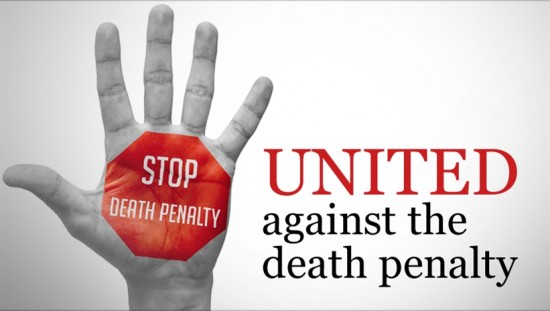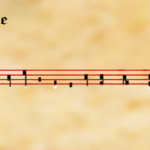
This morning the editorial boards of four prominent and politically diverse Catholic news publications came together to call for the abolition of capital punishment in the United States of America.
We, the editors of four Catholic journals — America, National Catholic Register, National Catholic Reporter and Our Sunday Visitor — urge the readers of our diverse publications and the whole U.S. Catholic community and all people of faith to stand with us and say, “Capital punishment must end.”
The Catholic Church in this country has fought against the death penalty for decades. Pope St. John Paul II amended the universal Catechism of the Catholic Church to include a de facto prohibition against capital punishment.
Last year, Pope Francis called on all Catholics “to fight … for the abolition of the death penalty.” The practice is abhorrent and unnecessary. It is also insanely expensive as court battles soak up resources better deployed in preventing crime in the first place and working toward restorative justice for those who commit less heinous crimes.
Admirably, Florida has halted executions until the Supreme Court rules, and Ohio Gov. John Kasich has postponed all seven executions in the state scheduled for 2015 pending further study. Pennsylvania Gov. Tom Wolf declared a moratorium on the death penalty until he has received and reviewed a task force’s report on capital punishment, which he called “a flawed system … ineffective, unjust, and expensive.” Both governors also cited the growing number of death row inmates who have been exonerated nationwide in recent years.
In a statement thanking Wolf, Philadelphia Archbishop Charles Chaput said: “Turning away from capital punishment does not diminish our support for the families of murder victims. … But killing the guilty does not honor the dead nor does it ennoble the living. When we take a guilty person’s life we only add to the violence in an already violent culture and we demean our own dignity in the process.”
Read the whole thing here.
Patheos Catholic endorses and applauds this joint statement and wishes to add its voice to the call, and for the simplest of reasons:
- We are Catholic. We seek not vengeance but the redemption of souls — even the “bad” souls, and the “corrupted” souls, and the souls that seem to us, in our limited understanding, to be wholly infected with evil. We know that the God of Mercy, the Christ who Saves (and who paradoxically serves) desires to draw all things, all beings to himself, and awaits only the turning-toward, the conversion of the prodigal soul seeking mercy, and he will save them. How can we, then, advocate cutting short the lives of men and women (many of whom have quite possibly lived their whole lives without hearing a genuine affirmation of their intrinsic human worth) when they are so desperately in need of that encounter, that chance for salvation? As Christians, how do we evangelize the convicted murderer — tell him that he is beloved of God, tell her “it is good that you exist” — while the message of the state actively contradicts these truths?
- We are Catholic; we do not throw people away. We do not dispose of them because they are inconvenient, or troublesome, or old or sick, or damaged, or even because they have done something heinous. We seek to raise, to heal, to companion, to assist in the working of salvific grace, as it moves.
- We are Catholic. Particularly in this season of Lent, when we are reminded of the great mercies God has bestowed upon us, and of our daily need for forgiveness, this call to end the death penalty is particularly well-timed. We who are in need of mercy, cannot say to another, “the time is up for you, mercy has passed you by.”
- We are Catholic. Through our sacrament of reconciliation, we know that real healing comes from the act of seeking forgiveness, but also in the act of offering forgiveness. Just as a criminal may need many years to be moved toward repentance, it takes victimized families time, too, to find and formulate the sort of forgiveness that not only assists in the work of redemption, but brings true healing — and therefore peace — to their own hearts, minds and souls. Forgiveness can happen at any time, this is true, but its fullest and most powerfully restorative expression comes when it can be both freely offered, and humbly received.
To those who suggest that capital punishment is a proper justice, and that one who has taken the life of another has no right to his own, or her own, let us consider a life lived in captivity, where, — because of one’s actions — one’s choices are forever limited; where simple human freedoms no longer exist for you. You cannot decide to take a walk at midnight, or plan a menu and entertain guests, or try a new restaurant, or rustle up some scrambled eggs, or go fishing, or sleep in, or lay on the grass with a good book, or dandle a baby, or watch a parade, or travel to Rome, or rearrange furniture, or retire to someplace quiet. The loss of simple human options like these is the loss of much of the richness of life; to most of us, it would feel like deserved but heavy justice, indeed.
Individual bloggers within this channel may feel differently, and they are entitled to their opinions and to make their arguments, but editorially, Patheos Catholic hopes today’s effort by Catholic publications begins to move the United States away from a cultural idea the the taking of one unlovely human life can somehow make up for the loss of another. That notion shares a kinship with the argument that violence and murder, perpetrated deeply within a woman’s womb, can somehow answer for the violence and horror of her rape. Abortion is an intrinsic evil, while capital punishment is a sometimes-permissible-but-regrettable action, true; still, neither practice can ever balance the scales. Violence does not erase violence; killing does not assist in healing, because it is ultimately empty. It replaces something with nothing.
We are Catholic. We do not serve the nothing. We do not dispose of people. We do not impose time limits on the turning-toward that brings about redemption and salvation.
Related:
Tom Zampino: 3 Reasons Why I No Longer Actively Support the Death Penalty
Dwight Longenecker: C.S. Lewis and the Death Penalty
Simcha Fisher: Why I no longer support the death penalty
Kathy Schiffer: Last Meals and Redemptions
Mark Shea: End the Death Penalty
Acts of the Apostasy: A Confluence of Opinion only Peter Venkman can define












